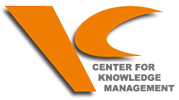WECAN aims at strengthening women’s entrepreneurial capacity and empowering the would-be entrepreneurs, or those with a newly established business, with a tailored coaching programme
|
Name of the project |
Women’s Entrepreneurship CoAches traiNing |
|
Acronym |
WECAN |
|
Implementation period |
01.11.2019 – 31.10.2021 |
| Challanges |
The 2008 crisis and the austerity measures taken afterwards have caused high unemployment rates in the European economies. Still today the group aged 30-45 is facing the main barriers to (re)enter the labour market. The challenge for these adults out of employment is to generate a new kind of growth that embraces entrepreneurship as a way to create innovative and competitive jobs. EU Member States need to consider new entrepreneurs as huge potential incubators of creative and innovative ideas that can lead to job creation, lower unemployment rates and better social and economic integration. In this framework, women’s entrepreneurial activity in Europe has not yet reached its full potential. The Women Entrepreneurship Report published by the Global entrepreneurship monitor for the years 2016/2017 shows that women face additional hurdles with respect to men and that these barriers restrain women’s success in entrepreneurial activities. Generally, women’s enterprises have lower growth expectations and higher rates of discontinuance than men in EU countries. Support for newly established businesses, mentoring, education and training are important tools to sustain women entrepreneurial activities; especially entrepreneurial education has become an important priority for the EU since it creates new companies and jobs, opens up new markets, improves productivity and creates wealth. WECAN addresses entrepreneurship as a key competence to both start up a business and create value as described by the EntreComp framework. The project aims at enhancing women’s positive perceptions of their skills to start a new business through a coaching journey in which coaches with relevant entrepreneurial experience will explain what it actually takes to be an entrepreneur. |
| Project Objectives |
WECAN aims at strengthening women’s entrepreneurial capacity and empowering the would-be entrepreneurs, or those with a newly established business, with a tailored coaching programme. The specific objectives of the project are to:
|
| Expected Results |
|
|
Target groups |
|
PROJECT IS CO-FUNDED BY THE ERASMUS+ PROGRAMME OF THE EUROPEAN UNION
 English (UK)
English (UK)  Македонски
Македонски 
